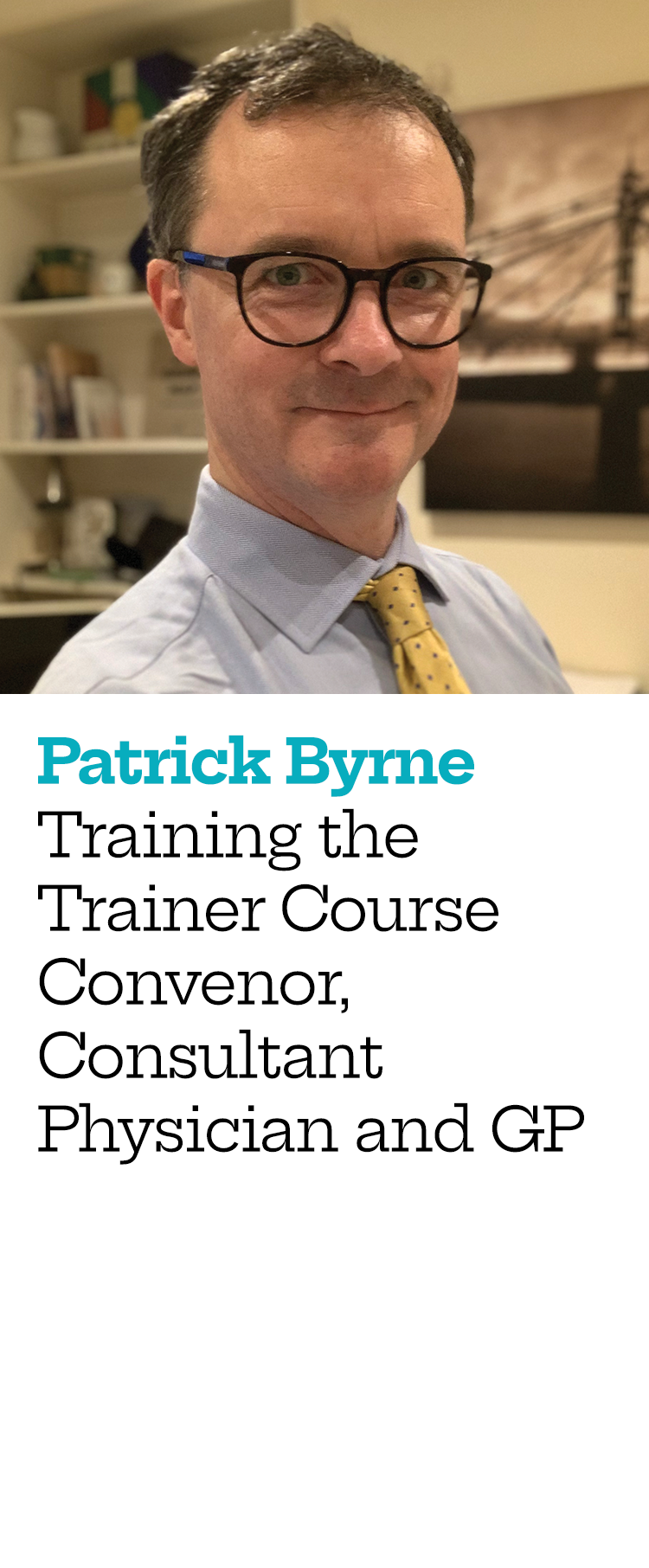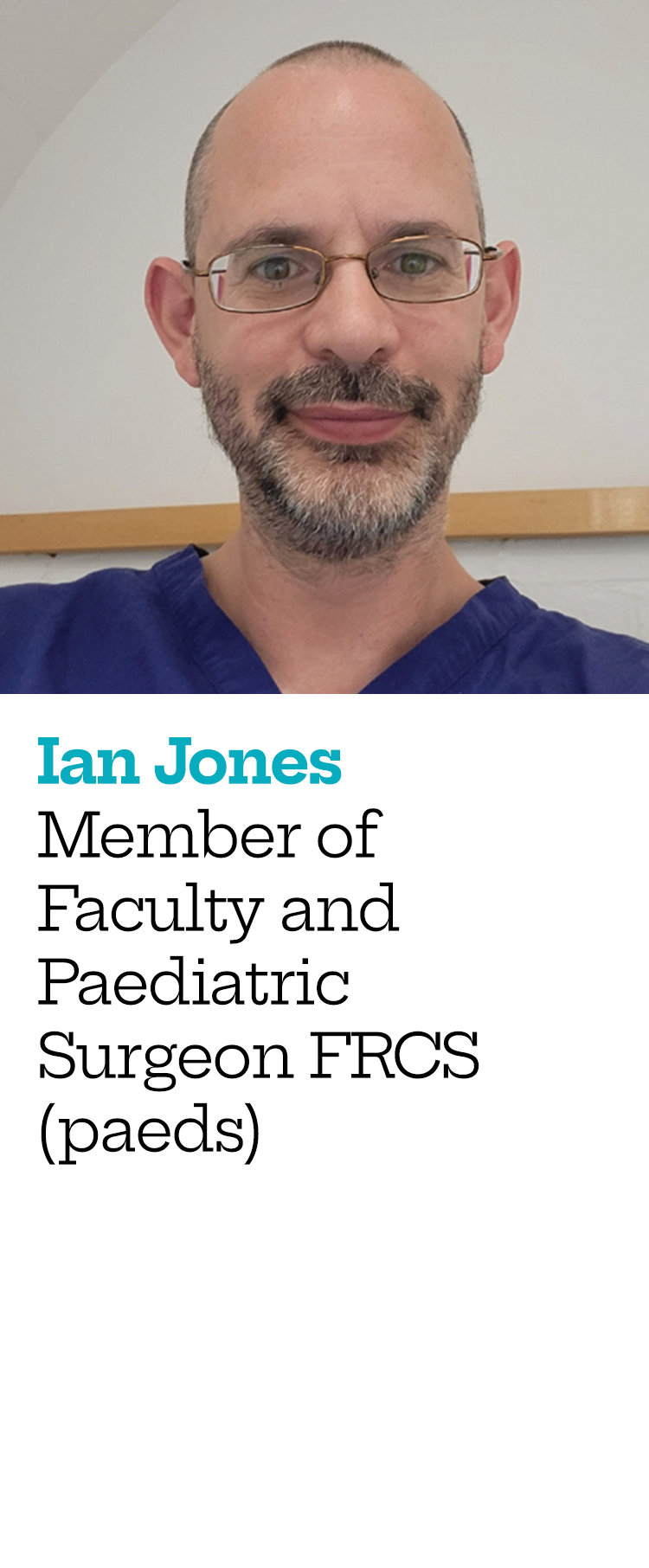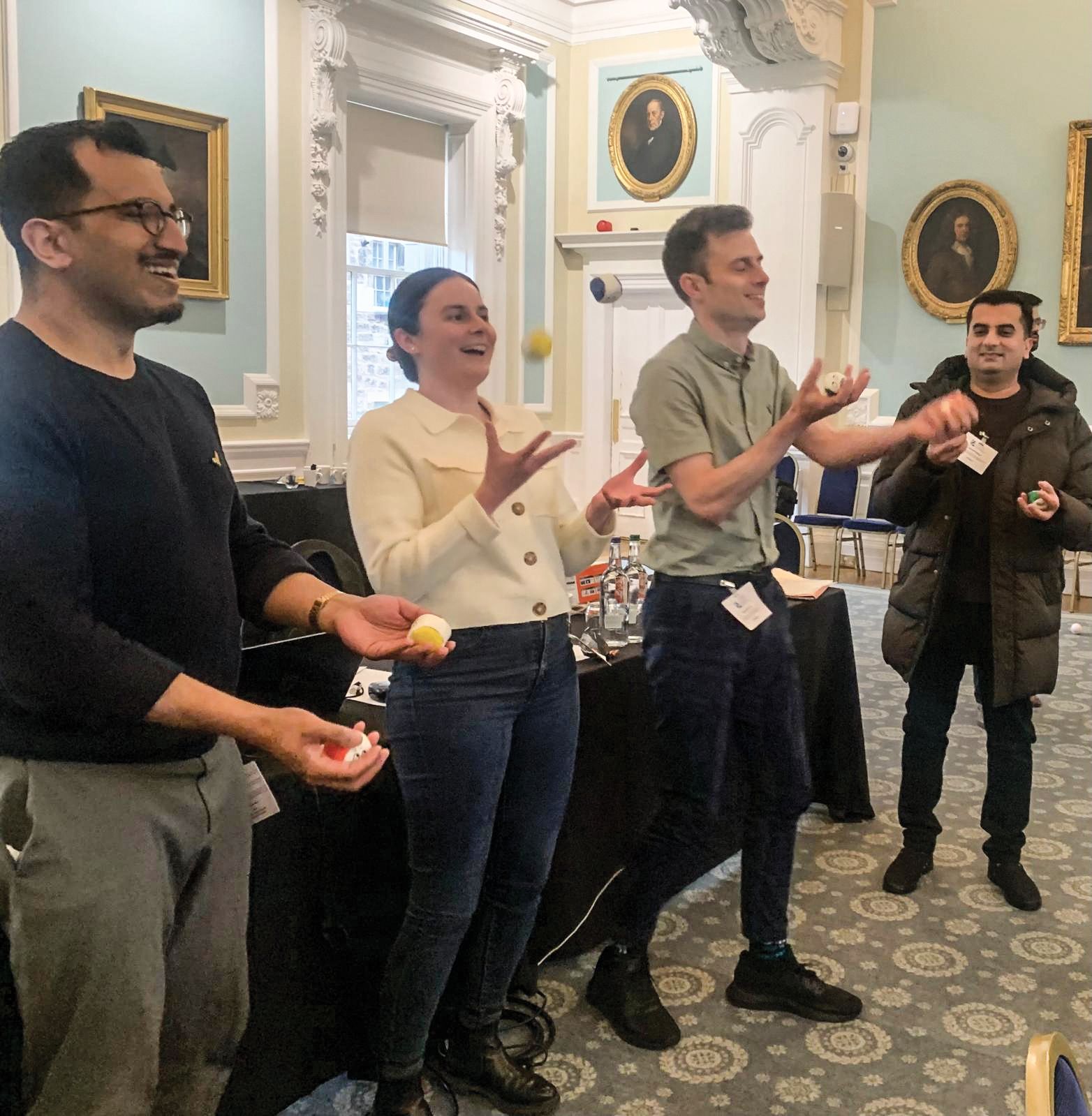Beyond box-ticking
The Training the Trainers course is key to boosting educators' skills

‘Training is patient safety for the next 30 years” – a key message from Sir John Temple’s 2010 report, Time for Training.
It is hardly surprising that the RCSEd should be at the vanguard of promoting the training and education of future surgeons and surgical educators. Predating the Temple report, for almost 30 years the RCSEd has delivered the Training the Trainers (TTT) course, beginning with the late Chris Bulstrode CBE, followed by Ian Ritchie and David Pitts and then the late Iain MacVicar.
Over time the course has evolved considerably and continues to do so. Run as a two-day in-person event featuring a series of interactive workshops, the course aims to help educators and trainers meet their day-to-day needs with practical solutions in time-pressured environments.
Surgeons, physicians, radiologists and educationalists are all part of the team delivering the sessions, and the course material has been developed and adapted by them over the years.
MARGINAL GAINS
In the space of two days, the course covers a significant amount of material – more than you can possibly put into practice when you return to your work. But that’s OK. It is important that you make small, tangible changes, one by one, marginal gains of 1%, that over time lead to dramatic improvement and impact.
Demonstrating appropriate standards of practice, and being assessed to ensure that one is of the required standard, goes back to the college’s charter of 1505, the earliest such record mandating assessment in the profession. Education, a social science, is not merely a series of didactic facts to be rote-learned and parroted back. The faculty would attest that no two talks are ever delivered exactly the same on successive courses.
The course is designed around the GMC criteria for recognition of trainers, outlined within the Academy of Medical Educators’ ‘Professional standards for medical, dental and veterinary educators’ (2014). These are:
- Ensuring safe and effective patient care through training
- Establishing and maintaining an environment for learning
- Teaching and facilitating learning
- Enhancing learning through assessment
- Supporting and monitoring educational progress
- Guiding personal and professional development
- Continuing professional development as an educator
Interactive workshops offer tips for teaching a practical skill effectively, such as juggling practice
Interactive workshops offer tips for teaching a practical skill effectively, such as juggling practice
A FRESH PERSPECTIVE
The challenge to delegates is not merely to take on board the subject matter being presented, but to critically appraise how it is being taught to ask why one method may have been chosen for a particular topic over another.
They leave with an understanding of how to benchmark their ability as a good trainer versus what an excellent surgical trainer should aspire to be. The faculty carries a remarkable range of knowledge and experience, which is hugely enriching.
Educational theory, models of teaching, providing feedback, coaching and mentoring are covered with top tips to improve teaching techniques. The most engaging and impactful sessions are when we consider the real challenges and difficulties faced in training.
These experiences, which are far from ideal, are discussed carefully and safely. The micro-teach sessions, where the delegates present, are highly valued too. It is almost unheard of that you would present a topic and the focus of the feedback is less on the content and more on the presentation skills. For this reason, the course dinner, while optional, is an important part of creating that safe environment where delegates will do something out of their comfort zone – for example, stand in front of a group and present with no adjuncts whatsoever.
YOU'LL BE BACK
The TTT comes with a warning, which is that you will need to attend the course more than once over your professional career. Although ‘need’ does not quite do the course justice – you will be drawn back as you take on other roles within your portfolio career. What you take from the course as a peri-CCT surgeon will be very different to what you take from it as a newly appointed TPD or other educational role with elevated responsibility.
The TTT course is run regularly throughout the year in Edinburgh and Birmingham. It is mainly aimed at senior trainees who are about to become consultants.
Ian Jones on his experience as a delegate on Training the Trainers
“A banner at a recent conference read: ‘Be the trainer you needed when you were a trainee.’ I am encouraged by this attitude – the need not to perpetuate bad experiences. Partly because it is simply wrong and we are all aware of how bullying shamefully still exists in our workplaces. Patient safety is not an optional extra to our professional practice – by extension, neither is training.
“Unquestionably my favourite piece of feedback from the RCSEd Training the Trainers course was the delegate who approached me at the end and said: ‘I came to tick a box for CCT, but it’s been brilliant, and I’ve learned so much that will help me develop as a trainer.’
“In terms of what the course is meant to do, it’s hard to think of better feedback than that. I have learnt even more by being recruited into the faculty.
“The course feedback is very affirming. Every delegate on the most recent course in Birmingham either agreed or strongly agreed with the statement that they would recommend this course to a friend or colleague.”
Feedback from other delegates
“Thanks to all the faculty for this exceptional course. Their passion for teaching and deep expertise in instructional design truly shone throughout. Their enthusiasm and dedication have inspired me to become a more effective trainer. I look forward to applying the knowledge and techniques I’ve learnt. Thank you for such an enriching experience!”
“I have learnt a lot of important things during this course – from theory to practice. The most outstanding thing is the micro-teaching that we prepared and gave, and then participated in critical feedback with our colleagues.”
“I left inspired to be an excellent trainer and enthused about training.”






